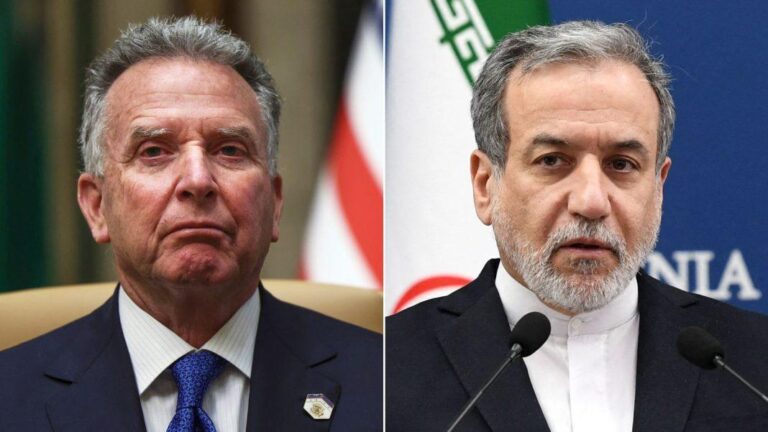Iran, the United Kingdom, France, and Germany are reportedly preparing to hold renewed nuclear negotiations as early as next week, according to Iranian media sources. The anticipated talks come amid ongoing international efforts to revive the 2015 nuclear deal, which aimed to curb Iran’s atomic program in exchange for sanctions relief. This development signals a potential thaw in diplomatic relations after months of stalled discussions, as key global players seek to address escalating concerns over Iran’s nuclear activities.
Potential Resumption of Nuclear Dialogue Signals Diplomatic Thaw
Recent reports from an Iranian news agency suggest that Iran, alongside the United Kingdom, France, and Germany, may soon reconvene for crucial nuclear negotiations. This move could mark a significant shift in diplomatic relations, as the involved parties seek to address longstanding tensions surrounding Iran’s nuclear program. The planned discussions are anticipated to focus on compliance measures, monitoring protocols, and potential easing of sanctions that have heavily impacted Tehran’s economy.
Key points expected to dominate the agenda include:
- Verification mechanisms: Enhancing International Atomic Energy Agency (IAEA) access and inspections.
- Sanctions relief: Discussions on timeline and scope.
- Regional security: Broader implications for Middle Eastern stability.
The potential resumption of talks underscores a tentative yet hopeful diplomatic thaw, reflecting both sides’ willingness to explore mutual concessions amid complex geopolitical dynamics.
| Country | Role in Talks | Focus Area |
|---|---|---|
| Iran | Primary subject | Nuclear program compliance |
| United Kingdom | Mediator | Sanctions negotiation |
| France | Negotiator | Nuclear program monitoring |
| Germany | Facilitator | Diplomatic engagement |
Key Issues on the Table for Iran and European Powers
The upcoming negotiations between Iran and the European powers—namely the UK, France, and Germany—are set to address several pivotal issues that have long shaped the fraught relationship surrounding Iran’s nuclear ambitions. At the forefront is the effort to revive and reinforce the Joint Comprehensive Plan of Action (JCPOA), with both sides aiming to iron out compliance concerns. Central to these talks will be Iran’s uranium enrichment activities, where the European parties seek limits and enhanced verification mechanisms to ensure peaceful use, while Tehran demands the lifting of sanctions that cripple its economy.
Key areas expected to dominate the dialogue include:
- Sanctions Relief: The scope and timelines for easing Western economic pressure in return for nuclear restrictions.
- Verification Protocols: Access and monitoring rights granted to the International Atomic Energy Agency (IAEA).
- Regional Security: Addressing indirect concerns tied to Iran’s regional influence and missile programs.
- Compliance Guarantees: Mechanisms to prevent future breaches and ensure sustained adherence by all parties.
| Issue | Iran’s Position | European Powers’ Position |
|---|---|---|
| Uranium Enrichment | Right to enrich for peaceful purposes | Limits on levels and stockpiles |
| Sanctions | Immediate lifting | Stepwise relief linked to compliance |
| IAEA Access | Controlled, with respect to sovereignty | Full inspections and monitoring |
| Missile Program | Non-negotiable defense capability | Calls for restraints and transparency |
Implications for Regional Security and Global Non-Proliferation
The anticipated nuclear talks between Iran and European powers—namely the UK, France, and Germany—carry significant weight for regional stability. Successful negotiations could ease tensions in the Middle East, a region already burdened by geopolitical rivalries and proxy conflicts. For neighboring countries, these talks represent a potential pathway to de-escalation, as any agreement would likely involve increased transparency and restrictions on Iran’s nuclear activities to prevent weaponization. Moreover, a revival of diplomatic engagement may foster greater cooperation on shared security concerns such as terrorism and missile proliferation.
On the global stage, these discussions underscore the enduring challenges and importance of the nuclear non-proliferation regime. The outcome will influence the credibility of international agreements designed to limit nuclear armaments and could set precedents for handling similar disputes elsewhere. Key factors at play include:
- Verification mechanisms: Ensuring robust, intrusive inspections to confirm compliance.
- Sanctions relief: Balancing incentive structures to bring Iran back into full compliance.
- Regional arms race prevention: Avoiding escalation by addressing security concerns of other Middle Eastern states.
| Stakeholder | Primary Concern | Impact |
|---|---|---|
| Iran | Sanctions relief & sovereignty | Economic recovery & regional influence |
| UK, France & Germany | Non-proliferation assurance | Global security & diplomatic credibility |
| Middle East States | Regional power balance | Reducing risk of arms race |
Strategic Steps Recommended for Sustained Negotiation Success
To foster progress in the upcoming nuclear talks, all parties must prioritize transparent communication and clearly define mutual objectives early on. Establishing trust-building measures such as regular information exchanges and confidence-enhancing steps can mitigate misunderstandings and lay a foundation for long-term dialogue. Crucially, stakeholders should agree on a structured negotiation framework that includes timely review points to assess compliance and adapt strategies as needed.
Moreover, embracing a multi-faceted approach with emphasis on diplomacy, technical expertise, and regional security considerations is vital to sustain momentum. The following strategic actions are recommended:
- Engage neutral mediators to facilitate unbiased dialogue
- Incorporate incremental agreements that allow phased implementation
- Maintain open channels for backdoor diplomacy to resolve impasses
- Leverage international organizations for monitoring and verification
| Key Focus Area | Recommended Measure |
|---|---|
| Transparency | Regular data sharing & joint inspections |
| Security Guarantees | Mutual non-aggression pledges |
| Verification | Third-party monitoring mechanisms |
| Flexibility | Phased timelines with review checkpoints |
Concluding Remarks
As discussions potentially move to a critical stage next week, the international community will be closely monitoring developments between Iran, the UK, France, and Germany. With tensions surrounding Iran’s nuclear program remaining high, any progress—or setbacks—in these talks could have significant implications for regional stability and global diplomatic efforts. Further updates will be provided as the situation evolves.




